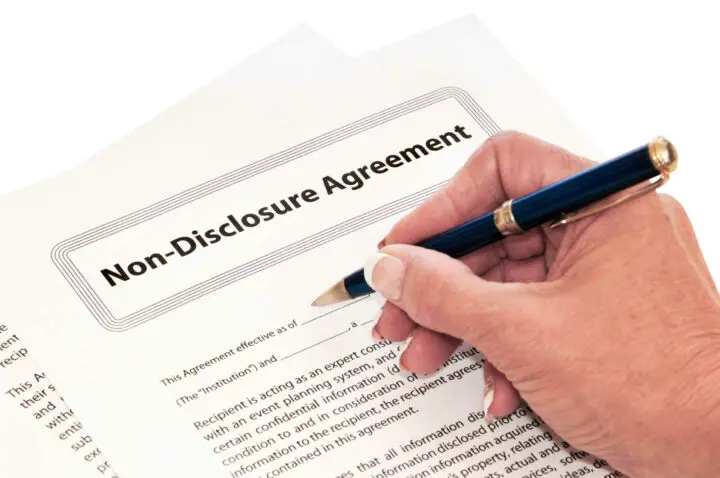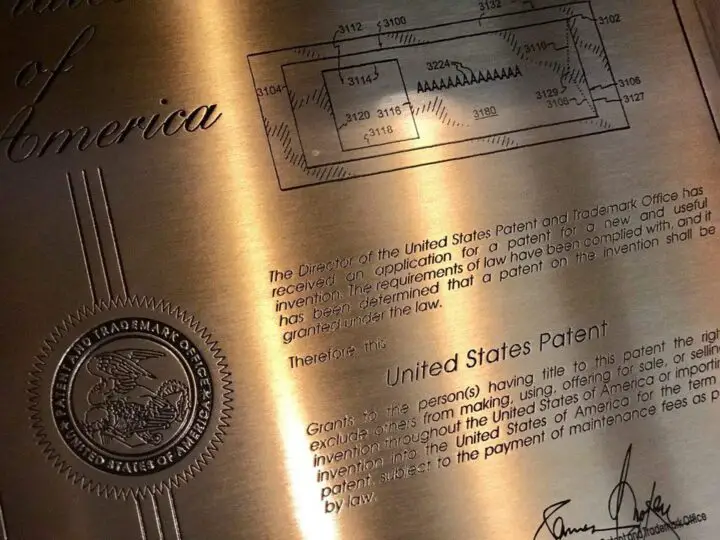4 Tips for Protecting Your Invention From Theft

You have come up with some new invention that you find very useful and you think it can bring you a lot of money? We are glad for you, it’s a great thing! However, the next thought that comes to your mind is probably: how do I make sure no one steals this idea from me? Invention theft is not at all rare and can lead to you losing money, reputation, and all the other benefits that your idea would bring you. Fortunately, there are several ways you can protect your invention from theft and ensure to avoid any unwanted situations. You can read some of our tips for protecting your idea from someone stealing it from you below.
1. Starting with a non-disclosure agreement is always a good idea

One of the best ways to protect your invention from theft is to create a non-disclosure agreement that all associates and clients will need to sign. By signing the NDA, they undertake that they will not be able to disclose your idea, as well as that they will not be able to use it outside of your permission. If this does happen, you have every right to sue them for breach of contract. It is very important that you do not reveal your invention to anyone before you get their signatures, no matter how much you trust certain people. Information spreads quickly, so sometimes someone can reveal your ‘secret’ to another person by accident, and then that person will use that information to steal your invention. Without signing an NDA, no one should know about your idea.
The format of this contract may vary, but generally, all contracts of this type contain a clear definition of confidential information, all obligations that the other party (signing the NDA) has and must comply with, as well as the period of validity of the non-disclosure contract.
Keep in mind that sometimes potential clients or investors do not want to sign an NDA, and that is their full right. Then it’s up to you to decide for yourself whether you trust them enough to be ready to share your invention with them, even when they are not contractually obliged not to use that information. This is not an easy decision, because on the one hand you risk losing the right to a patent, and on the other hand, you can lose a business partner that you may need at that moment. We cannot decide for you, but we can say that the decision depends on the trust you have in that person or company. If it is a very respectable person, there is little chance that they will steal your idea and take it as their own. However, in case this is a company with a questionable reputation that you know nothing about, we advise you to skip it.
2. Consider patenting your invention

One of the main and best ways to protect your invention is to patent it. Of course, the first condition here is that your invention meets certain criteria and that it can be patented. For starters, you can’t patent an idea, but only a product, method, or something else that belongs to a group of patentable inventions. There are three basic types of patents: design patents, plant patents, and utility patents (which you can use for some abstract ideas, as well as for new processes, machines, and objects that are useful and revolutionary enough). The type of patent you choose will, logically, depend on the type of your invention.
If this whole story sounds confusing to you and you are not sure if your invention is patentable, as well as what the patenting process looks like, it is a good idea to seek the help of an expert. InventHelp can refer you to an independent licensed patent attorney for a preliminary patentability search and opinion.
In case you conclude that your invention meets the criteria for a patent, you will want to file a provisional patent application while you wait for the patenting process to be completed. This will ensure that no one can steal your invention in the meantime, while the whole procedure is still ongoing.
3. Don’t forget to document the whole process

Another thing that can be helpful when trying to protect your invention from theft is to document the entire process. It is very important that you write down the process of developing your idea and invention on paper. And make it as detailed as possible. This will ensure that you have a paper trail that will confirm the originality of your idea if necessary. In case you have to go to court to prove that someone stole your invention you will have clear evidence that shows the development path of your invention and the dates when it all happened. This can confirm that you are telling the truth and eventually protect your idea from someone stealing it from you and using it as theirs.
4. Think about establishing a trademark

In case your invention is a phenomenal business idea you will want to protect it from theft and prevent others from using it as your own. Another way you can achieve this is to establish a trademark, as the name of the company is directly related to its ideas. Remember to document the entire trademark registration process and write down the dates, so that you have clear evidence of the development of the business idea at a given time.
Conclusion:
Coming up with an amazing idea for an invention is such an exciting and promising thing. However, it is necessary to protect your invention from theft so that someone does not use it as their own. Fortunately, there are several different ways to achieve this. You can choose to create a non-disclosure agreement that will need to be signed by all associates and clients before you discover their idea. In case your invention meets the requirements for patenting, we definitely recommend a go for it. And of course, it is very important that you document the entire process of developing your invention so that you have a clear paper trail that you will be able to attach to the court as evidence if necessary.
